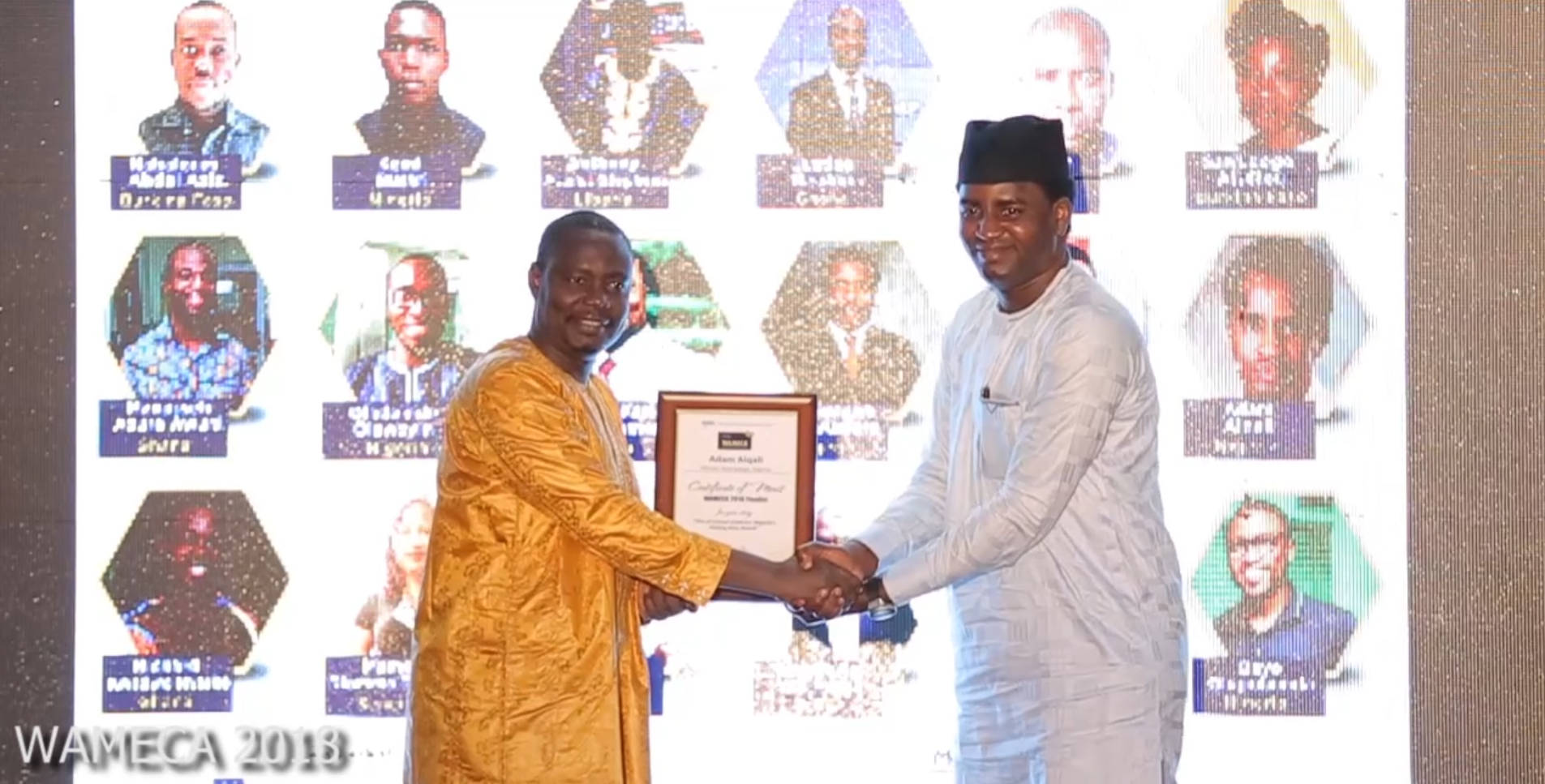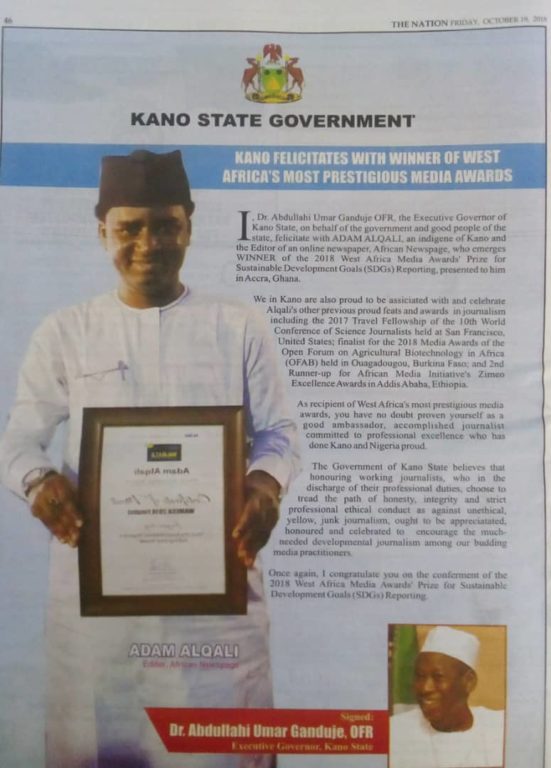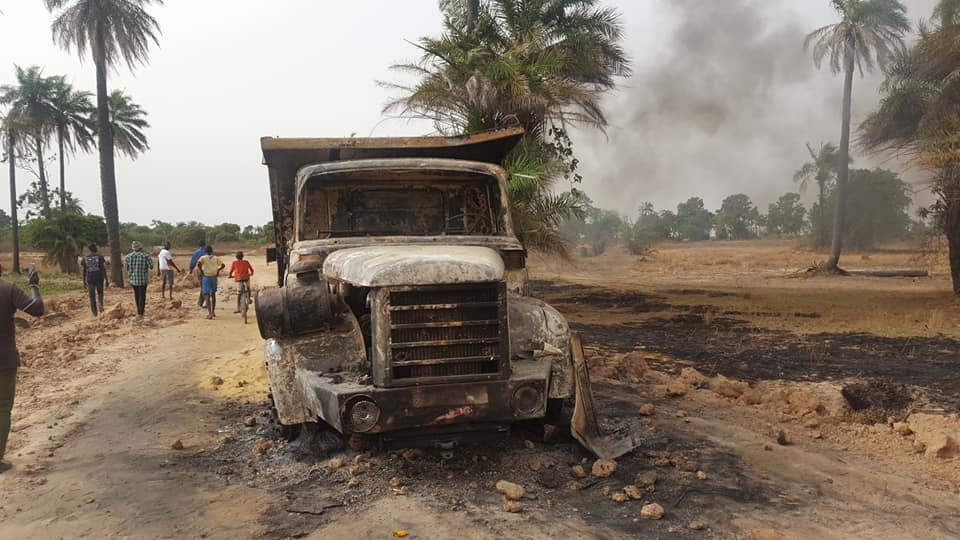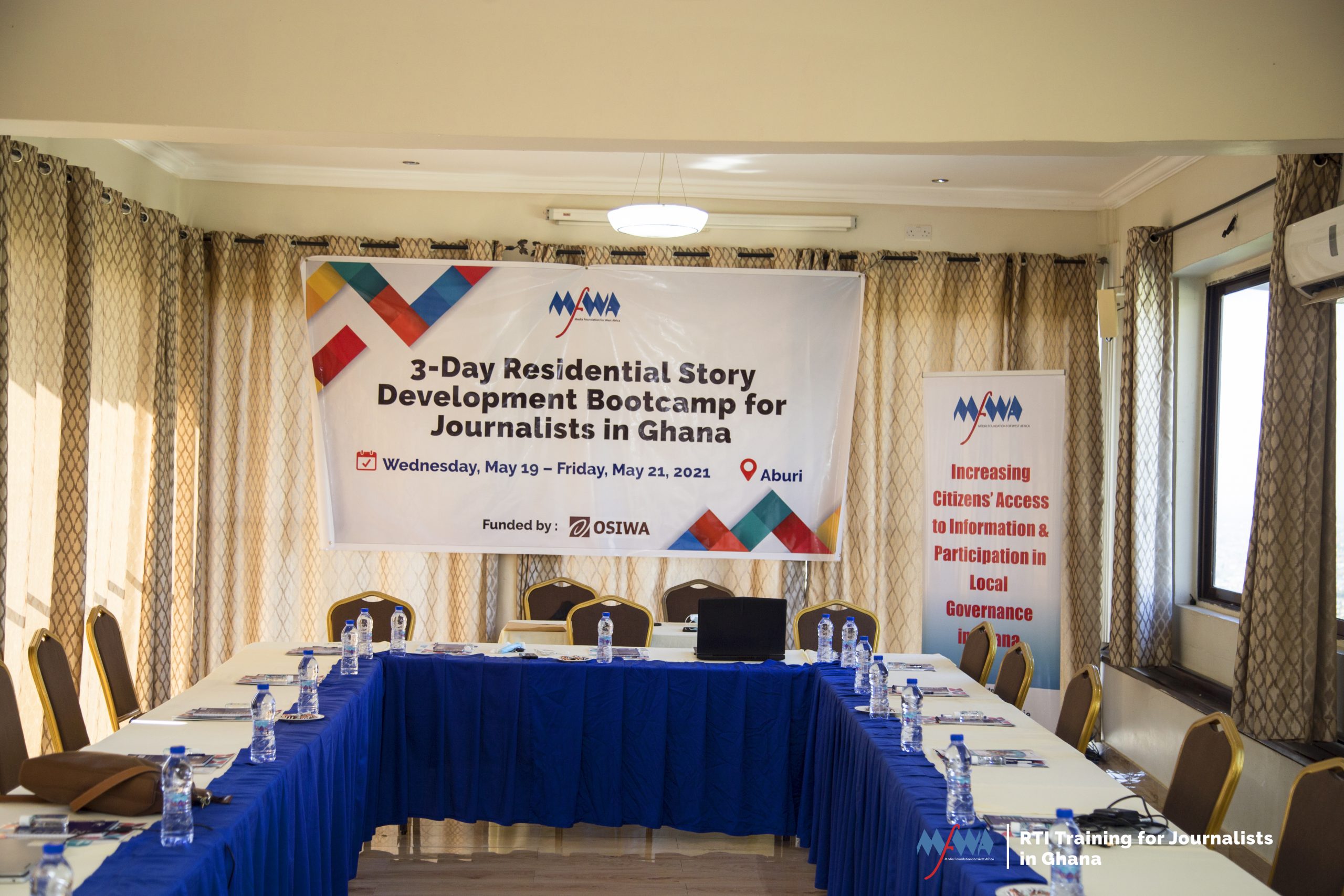In 2018, Adam Alqali, Editor of African Newspage in Nigeria, emerged winner of the SDGs reporting category of the West Africa Media Excellence Conference and Awards (WAMECA). He picked up the award at the WAMECA event held in October that year at the Alisa Hotel in Accra, Ghana.
In 2022, four years later, Adam met with the WAMECA team for an interview, coincidentally, at the same Alisa Hotel in Accra. It was a moment of nostalgia for him, recollecting memories about winning what he says is his most prestigious award.
“I just can’t explain the feeling when I got an email from MFWA saying that I had been selected; I had become a finalist for the 2018 WAMECA awards,” he said.
“I had won quite a few awards until then, but none was as prestigious as WAMECA, and I must say that I have not even won anyone more prestigious since then,” Adam added.

Winning the award saw Adam receive a plaque and a cash prize at the event. He was also initiated in the MFWA’s journalism for change programme. But those were not the only benefits he enjoyed.
Back in his home country, Nigeria, Adam Alqali was honoured by the Kano State, where he hails, for winning the award. Dr. Abdullahi Umar Gandunje OFR, Executive Governor of Kano State, congratulated him with a statement in the national dailies.

“As recipient of West Africa’s most prestigious media awards, you have no doubt proven yourself as a good ambassador, accomplished journalist committed to professional excellence who has done Kano and Nigeria proud,” the statement read in part.
Being a member of the MFWA’s journalism for change programme, Adam was introduced to reporting about the governance of the African Union and the continental body’s mechanisms and protocols through a training workshop the MFWA organised. The training programme was held in Addis Ababa for some selected journalists across Africa in 2019.
The training opportunity, he said, tremendously changed the focus of his journalism career.
Below are excerpts of the interview the WAMECA team had with Adam Alqali.
WAMECA Team: Why did you submit an entry?
Adam: I felt WAMECA was an opportunity to take my career to what I know to be high level at that time. I had always had this continental vision as a journalist. You know, I had always been interested in African affairs. But until then I was not really doing it because you needed opportunities that would expose you know to the issues and people at the continental level. So, until then I was not really able to achieve any breakthrough. So, when I saw WAMECA, I thought this could be the opportunity; winning that award could pave the way for me to take my career to another level. Hence, I decided to submit a story I did on ‘out-of-school children in Nigeria’ [story] which is a very serious issue. We have like ten or even more million young people, children not going to school. So, the story I submitted eventually won the SDGs reporting category of WAMECA 2018 and since then, my career has never been the same.
WAMECA Team: Tell us more about the story and why you did it?
Adam: There are central characters in the story. I could remember there are these two siblings, one was going to school, one of the best schools in Bauchi, which is one of the states in northeastern Nigeria, and the other who was not going to school was rather an apprentice tailor in his community. So, it was a very striking contrast for me to meet those children on the streets of Bauchi town, and I felt like bringing out their story and telling it to the world. It was worth doing. Hence, I eventually made them the central characters of my story. And when I was doing that story, I must confirm I never thought anything was going to come out of it. You know, as journalists, these are social issues we report on a daily basis, and then it turned out that story would be my breakthrough story.
WAMECA Team: What was the feeling when you received the notification that you have been shortlisted?
Adam: I just can’t explain the feeling when I got an email from Media Foundation for West Africa saying that I had been selected, that I had become a finalist for the 2018 WAMECA awards. I think it was indescribable because I had won quite a few awards until then, but none was as prestigious as WAMECA, and I must say that I have not even won anyone more prestigious since then.
WAMECA Team: And then you were finally invited to Accra, and on the night of the awards, you were announced the winner, how did you feel?
Adam: I can’t describe that honestly, because here we were, in the midst of competent, outstanding journalists from all across West Africa and the names were being mentioned of the finalists based on their trajectory. One could tell that they were really great journalists. Everyone was a great journalist in their own respective areas and countries. So, the fact that I emerged the winner in the SDGs reporting category, I would say was overwhelming and was quite surprising to me because to be honest with you I wasn’t really much optimistic about winning it.
WAMECA Team: How has the award impacted your career?
Adam: I would say that winning WAMECA in 2018 in the SDGs reporting category, was a watershed moment in my career. It is what changed my entire career as a journalist. Like I said earlier, I have always been interested in taking my career to the continental level, but until then there was no such opportunity. So winning WAMECA is what opened up the opportunities and since then, you know, at risk of sounding immodest, now I would say now I am a stakeholder as far as journalism is concerned in Africa.
WAMECA Team: Any final words for your colleague journalists in the region?
Adam: I will encourage my colleagues from across the west-African sub-region to submit entries into WAMECA. Indeed, I believe there is nothing like it, and I must say not only in the region. Even in other regions, I have not seen any other awards as prestigious as WAMECA. For example, in East Africa or southern Africa, there is nothing like such so what the Media Foundation for West Africa is doing is indeed unique you know and there is nothing like it. As such, I would encourage my colleagues from across the region, the 15 or 16 West African countries, who feel they are qualified and have written stories across the various categories to submit their entries for consideration in the upcoming WAMECA awards, coming in October 2022.






